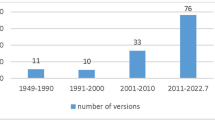Abstract
IN the supplementary volume of his “Entstehung und Ausbreitung der Alchemie” (1931, p. 17), Prof. E. O. von Lippmann refers to my note on Chinese alchemy,1 and since he appears to assume that in these matters silence gives consent (see his work, p. 40), it seems necessary to make some reply to his statements. He had adopted in the first volume of his book (1919, 449 ff.) the thesis of Berthelot that alchemy in China was transmitted through the Arabs, and this view, which is not held, so far as I am aware, by any competent authority at present, he maintains in the new volume. The sources of his information in both volumes are considerably removed from the originals, and for this reason he has probably not noticed that they are almost entirely based on the important paper by Edkins, which he refers to as ‘old’. He directs attention to a review by Laufer2 of Johnson's “Study of Chinese Alchemy” (also largely based on Edkins's paper) as in some way representing ‘modern’ opinion on the matter. In this review Laufer makes no contribution to the subject, merely referring to Maspero's ‘critical work’ on China.3 Maspero, however, does not mention alchemy beyond a vague remark that it probably reached China from India in the third century A.D., a thesis which is not at all in agreement with Prof. Lippmann's. An Arabic origin of Chinese alchemy seems to me improbable on several grounds. In addition to those already given, I may refer to the statement of Al Nadim in the “Fihrist”,4 which shows that, even in the early period (A.D. X cent.) of the study of Arabic alchemy, an Indian or Chinese origin was considered possible. Another fact which seems to speak against an Arabic origin of Chinese alchemy is that its Study was almost entirely confined to Buddhist circles, both in India and China.
This is a preview of subscription content, access via your institution
Access options
Subscribe to this journal
Receive 51 print issues and online access
$199.00 per year
only $3.90 per issue
Buy this article
- Purchase on Springer Link
- Instant access to full article PDF
Prices may be subject to local taxes which are calculated during checkout
Similar content being viewed by others
References
NATURE, 119, 11; 1927: see also ibid., 120, 158, 878; 1928—which are not mentioned by Lippmann.
Isis, 12, 330; 1929.
"La Chine antique", Paris, 1927.
Berthelot, "Chimie au moyen âge", vol. 3, p. 40.
NATURE, 120, 158, 242; 1927.
Alchemie, 2 23.
vol 1, 1911.
Author information
Authors and Affiliations
Rights and permissions
About this article
Cite this article
PARTINGTON, J. Chinese Alchemy. Nature 128, 1074–1075 (1931). https://doi.org/10.1038/1281074a0
Issue Date:
DOI: https://doi.org/10.1038/1281074a0
Comments
By submitting a comment you agree to abide by our Terms and Community Guidelines. If you find something abusive or that does not comply with our terms or guidelines please flag it as inappropriate.


